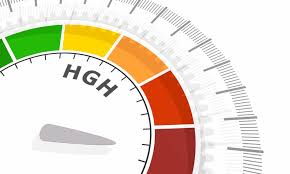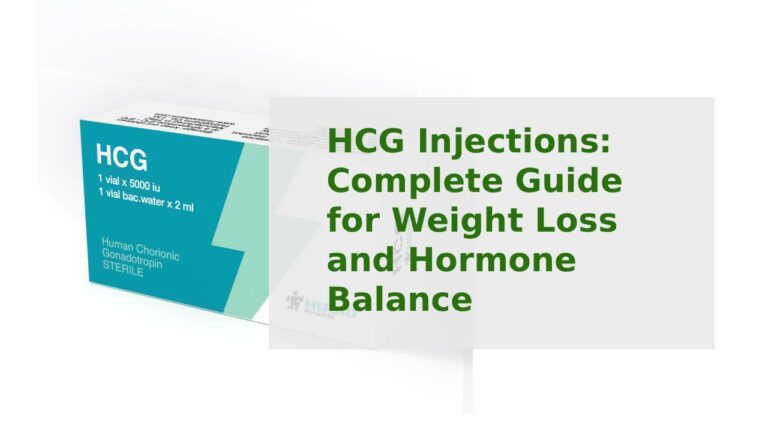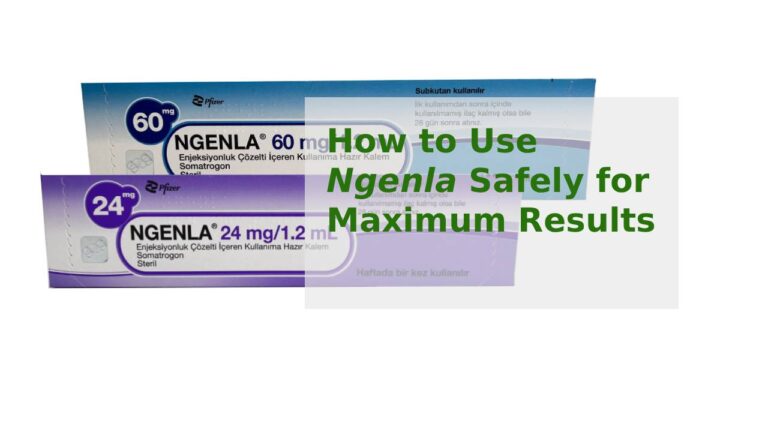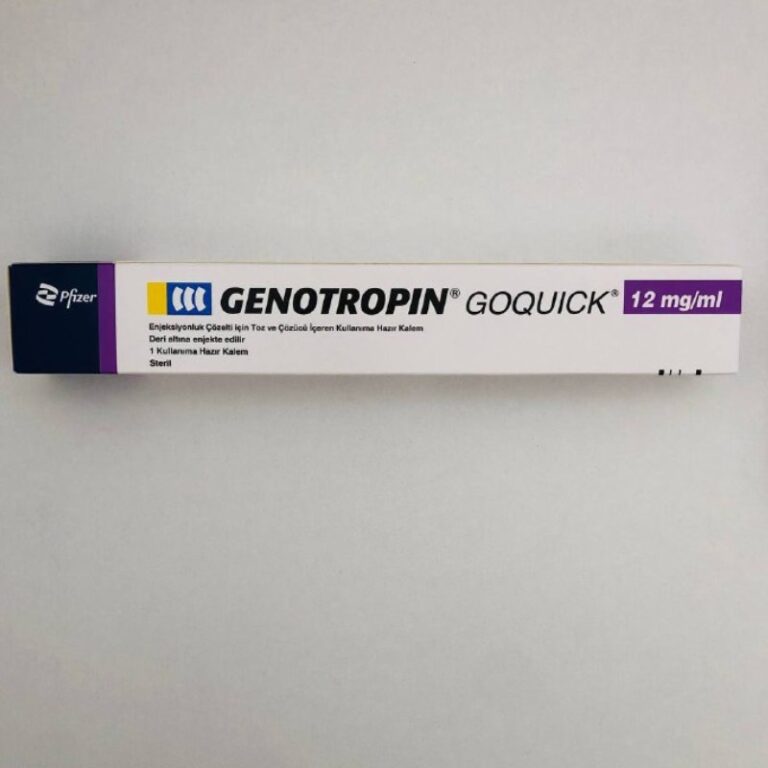- Introduction
- What Is Human Growth Hormone?
- How HGH Works in the Body
- Human Growth Hormone Benefits
- HGH for Health vs. Performance
- Clinical Indications for HGH Therapy
- Dosage and Administration
- Potential Side Effects of HGH
- Comparing HGH with Alternatives
- Real User Reviews
- Frequently Asked Questions (FAQ)
- Expert Insights
- Conclusion
Introduction
Human Growth Hormone (HGH) is one of the body’s most powerful natural regulators of health, growth, and repair. Produced by the pituitary gland, HGH plays a central role in childhood development, muscle growth, metabolism, tissue regeneration, and overall vitality.
While its importance in children is obvious, research has revealed that HGH remains just as critical in adulthood. From improving body composition to enhancing recovery and supporting cognitive health, HGH has become a subject of global medical interest. In fact, recombinant HGH therapy is now widely used to treat hormone deficiencies and, in some cases, to optimize performance and longevity.
In this article, we’ll explore the science of HGH, its health and performance benefits, potential risks, and what patients need to know before considering HGH therapy.
What Is Human Growth Hormone?
Human Growth Hormone (HGH), also known as somatropin, is a protein-based hormone naturally produced by the anterior pituitary gland. It stimulates growth in children and plays an ongoing role in maintaining:
- Lean body mass
- Bone density
- Metabolic balance
- Tissue repair and recovery
- Immune function
Modern medicine uses recombinant DNA technology to create synthetic HGH (somatropin) that is identical to the naturally occurring hormone. This form is administered by injection, often via convenient HGH pens like Genotropin, Norditropin, or Humatrope.
👉 “Looking for pharmacy-grade HGH pens? Check our Genotropin Pen 36IU by Pfizer for trusted results.”
How HGH Works in the Body
HGH acts both directly on tissues and indirectly through insulin-like growth factor 1 (IGF-1), which is produced in the liver and other organs after HGH stimulation. IGF-1 mediates many of HGH’s anabolic and metabolic effects.
Key Actions of HGH
- Cellular growth and repair – stimulates protein synthesis and muscle development.
- Bone elongation – critical in children for height increase.
- Fat metabolism – enhances lipolysis, reducing fat storage.
- Collagen production – supports skin elasticity and wound healing.
- Brain function – influences memory, mood, and cognition.
- Energy regulation – balances glucose and lipid metabolism.
Human Growth Hormone Benefits
HGH benefits can be divided into clinical uses (approved medical therapy) and wellness/performance outcomes reported by patients.
1. Promotes Growth in Children
HGH therapy helps children with growth hormone deficiency or conditions like Turner syndrome and Prader–Willi syndrome achieve normal growth rates.
2. Enhances Muscle Mass & Strength
HGH stimulates protein synthesis, leading to increased lean muscle mass, faster recovery after training, and improvements in physical strength.
3. Reduces Body Fat
By promoting lipolysis, HGH encourages the body to burn fat for energy, often leading to a leaner physique.
4. Supports Bone Health
HGH improves bone mineral density, reducing the risk of osteoporosis and fractures — particularly important in older adults.
5. Improves Skin and Hair Quality
Collagen production increases under HGH influence, making skin more elastic, youthful, and resilient.
6. Boosts Energy and Vitality
Many patients report improved stamina, mood, and overall well-being with HGH therapy.
7. Aids Recovery & Healing
HGH accelerates recovery from injuries, burns, and surgeries by stimulating tissue regeneration.
8. Supports Metabolism and Heart Health
It plays a role in cholesterol balance, glucose regulation, and cardiovascular function.
Athletes often report faster recovery and lean muscle gain when using HGH pens such as Jintropin 100IU Somatropin
HGH for Health vs. Performance
| Application | Benefits | Notes |
|---|---|---|
| Health / Medical Use | Restores normal growth in children, treats adult HGH deficiency, improves bone density | Approved by FDA for specific diagnoses |
| Performance / Wellness Use | Increased energy, muscle mass, fat loss, anti-aging effects | Considered off-label, requires medical supervision |
Clinical Indications for HGH Therapy
Doctors may prescribe HGH for:
- Children: growth hormone deficiency, Turner syndrome, Prader–Willi syndrome, chronic kidney disease, small for gestational age.
- Adults: adult growth hormone deficiency (AGHD), pituitary disease, post-surgical hormone loss, metabolic dysfunction.
Dosage and Administration
HGH is usually given via subcutaneous injection using either a syringe or pen device.
Typical Dosage Guidelines
| Patient Group | Dosage Range | Frequency |
|---|---|---|
| Children with GHD | 0.16–0.24 mg/kg per week | Daily injections |
| Adults with AGHD | 0.1–0.3 mg per day | Daily |
| Older adults | Lower starting dose | Titrated slowly |
⚠️ Dosage must always be prescribed and adjusted by a qualified healthcare professional.
Potential Side Effects of HGH
While highly beneficial, HGH therapy is not without risks, especially if misused.
Common Side Effects
- Water retention (edema)
- Joint pain or stiffness
- Injection site reactions
- Headaches
Serious Side Effects (rare)
- Carpal tunnel syndrome
- Insulin resistance or type 2 diabetes
- Increased risk of certain cancers (if predisposed)
- Intracranial hypertension in children
Comparing HGH with Alternatives
| Therapy | Main Benefits | Limitations |
|---|---|---|
| HGH (Somatropin) | Direct replacement, powerful growth and metabolic effects | Injectable only, costly |
| Peptides (e.g., Ipamorelin, CJC-1295) | Stimulate natural HGH release | Less predictable, milder |
| Testosterone Therapy | Boosts muscle and libido | Doesn’t replicate HGH’s tissue repair effects |
| Lifestyle (sleep, diet, exercise) | Natural HGH boost | Limited if severe deficiency exists |
Real User Reviews
| User | Age | Purpose | Experience | Rating |
|---|---|---|---|---|
| Sarah K. | 13 | GHD | Gained 7 cm in first year of treatment | ⭐⭐⭐⭐⭐ |
| Mark T. | 38 | Adult GHD | Improved energy, better sleep | ⭐⭐⭐⭐ |
| Lisa P. | 45 | Wellness | Lost 6 kg fat, more vitality | ⭐⭐⭐⭐ |
| David R. | 50 | Recovery | Faster healing post-surgery | ⭐⭐⭐⭐⭐ |
| Emma L. | 30 | Fitness | Noticeable lean muscle gain | ⭐⭐⭐⭐ |
Frequently Asked Questions (FAQ)
Q1: How fast does HGH work?
Children may show growth improvements within months, while adults typically notice energy and metabolism changes within 3–6 months.
Q2: Can HGH be used for anti-aging?
Some use HGH off-label for anti-aging, but medical approval is limited to diagnosed deficiencies.
Q3: Is HGH safe?
When prescribed and monitored, HGH is generally safe. Misuse or overdosing increases risks.
Q4: Do HGH pens require refrigeration?
Yes, before first use. Some brands (like Norditropin) can be stored at room temperature after activation.
Expert Insights
Endocrinologists emphasize that while HGH is powerful, it is not a magic bullet. Its effects are strongest when combined with:
- Proper diet and exercise
- Adequate sleep (natural HGH release is highest at night)
- Regular monitoring of IGF-1 levels
Conclusion
Human Growth Hormone (HGH) is a vital hormone that regulates growth, repair, metabolism, and vitality throughout life. From helping children reach their growth potential to restoring energy and strength in adults, HGH therapy offers life-changing benefits when prescribed responsibly.
However, like any medical treatment, HGH carries risks if used incorrectly. That’s why it is critical to seek treatment from a licensed healthcare provider, follow dosage guidelines, and undergo regular monitoring.
For individuals with true hormone deficiencies, HGH therapy can boost health, performance, and quality of life in ways few other treatments can match.




